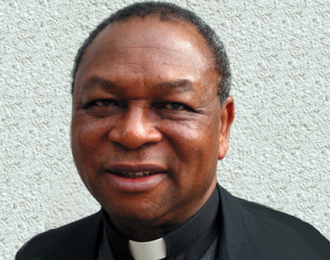Nigeria: Cardinal says most Boko Haram fighters want to quit

Cardinal Onaiyekan
Offering amnesty to Boko Haram fighters could result in most of the terror group's forces laying down their weapons, according to one of Nigeria's most senior Church figures, who has renewed calls for a peaceful resolution to the insurgency. Cardinal John Onaiyekan, Archbishop of Abuja, said that up to 80 percent of Boko Haram fighters did not share the terror group's Islamist ideology and were therefore likely to respond to the chance to lay down their weapons and walk away.
In an interview with Aid to the Church in Need, which supports persecuted and other suffering Christians, the Cardinal said: "More people are in Boko Haram because they were drafted and had no choice. Those who would espouse the theology of Boko Haram are not that many. It means that of those up to 70 or 80 percent will want to come out."
The cardinal's renewed call for consideration of asylum for Boko Haram fighters comes amid reports of breakthroughs in the struggle against the terror group. On Saturday (19th September) Nigeria's military reported further gains in its counter-offensive against Boko Haram in its traditional heartland in the north-east, but the terror group's leader Abubakar Shekaku dismissed the claims as "lies".
Cardinal Onaiyekan said: "In the past month we have seen evidence of major inroads into the areas of Boko Haram. It can be said that today they no longer control large sections of our national boundary. They no longer hold areas that are out of bounds to everybody but them. But they are still around and can create havoc."
While praising the policies of new Nigerian President Mohammadu Buhari in tackling Boko Haram since he took office on 29 May, the cardinal said success against the terror group was also evident in the final days of the government of President Goodluck Jonathan.
The cardinal highlighted a military shake-up in which commanders shifted their base to the north-east, close to Boko Haram's stronghold.
He also praised President Buhari's initiatives to form a coalition against Boko Haram, collaborating with neighbouring Chad, Cameroon and Niger.
The Cardinal went on to stress the significance of further negotiations the new President had brokered with leading powers such as France and the US including the sharing of intelligence.
With Boko Haram apparently in retreat, the Cardinal said negotiations towards an amnesty of soldiers from the terror group would need to ensure that those who do give up arms make a commitment to renounce their allegiance to the terror group and violence forever.
He went on: "There should be a commitment. If they come out, you will treat them well. That will encourage more to come out. But if you treat them badly and slaughter them, that will stop others from coming out. Our country is big enough and strong enough to take the risk of amnesty."
The cardinal said a policy of offering asylum to Boko Haram soldiers was not popular with many Christians. He said: "Boko Haram succeeded in destroying all goodwill between Muslims and Christians in those areas where [the terror group] was active. In some cases we have seen a lot of anger between Muslims and Christians. A lot will need to be done to recover, to enable them to work together."
According to the Catholic Diocese of Maiduguri, in Boko Haram's prime target area of north-east Nigeria, at least 5,000 faithful have been killed, with 350 churches and presbyteries destroyed.
Up to 100,000 faithful were displaced with a number receiving emergency help from charities including Aid to the Church in Need. Some of the displaced are now returning home.


















